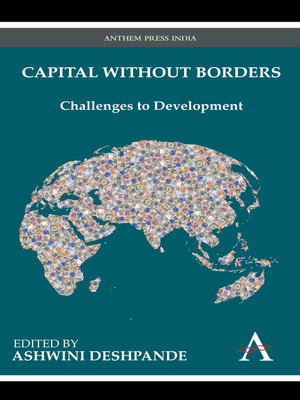Capital Without Borders
ebook ∣ Challenges to Development · Anthem Frontiers of Global Political Economy and Development
By Ashwini Deshpande

Sign up to save your library
With an OverDrive account, you can save your favorite libraries for at-a-glance information about availability. Find out more about OverDrive accounts.
Find this title in Libby, the library reading app by OverDrive.



Search for a digital library with this title
Title found at these libraries:
| Library Name | Distance |
|---|---|
| Loading... |
This volume examines a plethora of issues related to international capital flows, including the inevitable crisis that arises from the absorption of large volumes of capital inflow; the vast difference between foreign portfolio investment and foreign direct investment (FDI) from the point-of-view of the recipient country; the impact of different regulatory mechanisms; and various policy options for developing countries in the face of fluid international capital movements.
|This book contains selected papers from the Annual Conference on Development and Change (ACDC) held at Sao Paulo in November 2006. Second in a series of three conferences, the 2006 ACDC showcased research by relatively younger scholars. While precise and rigorous alternatives to the neoliberal agenda are often overlooked in the huge volume of literature that addresses the larger issues, both aspects - the larger picture and the smaller nuts-and-bolts details - are very important, and this volume fills the gaps in the latter category. These papers were written before the global recession, and events subsequent to the conference and the writing of these papers have validated several of the concerns raised by their authors.
This volume focuses on a plethora of issues from the point of view of the South. It demonstrates, for example, that if capital inflows exceed a certain volume - no matter how they are absorbed - such openness will inevitably result in a crisis in the receiving country. The popular understanding of foreign portfolio investment as more benign than foreign direct investment (FDI) is also challenged. By contrasting contemporary capital flows as well as the international capital flows of the nineteenth century, this collection highlights the role of regulation and the role of the state, and ultimately emphasizes the need for recipient country governments to exercise policy options to control the volume of foreign capital inflows.







